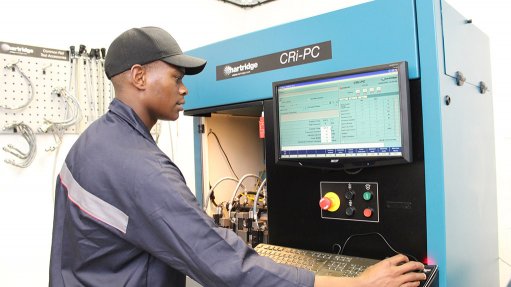
As diesel engine technology advances in leaps and bounds, fleet owners need to appreciate the high level of equipment and skills needed to keep their trucks running efficiently.
“The great advantage of modern diesel truck engines is the fuel cost savings they offer their owners, mainly due to significant recent developments in fuel injection systems,” says Reef Fuel Injection Services director Andrew Yorke. “Recent technological progress has in fact been focused more on the diesel injection aspects than on the engines themselves.”
He warns, however, that keeping abreast of the specialised know-how and equipment from OEMs to test, diagnose and calibrate injection systems today requires constant and considerable investment.
“Many of South Africa’s aftermarket service providers had already fallen behind global trends during the sanctions era, when we ran with one brand of engine with mechanical fuel pump technology,” says Yorke. “The rest of the world had begun pursuing the electro-mechanical route, and we were not keeping up.”
This required South African players to effectively skip much of the electro-mechanical phase of development in fuel injection and jump straight into the modern era of electronics.
“For those players who did not fully understand this transition – and who did not invest substantially in the requisite equipment and expertise – the pace and demands of change have left them behind, leading to considerable attrition in this market,” he says. “The fact is that proper testing and diagnosis now requires OEM-specific equipment, if the fuel injectors are to be restored to as‑new condition after maintenance.”
Yorke highlights a critical step – often overlooked due to the lack of the right equipment – in the final calibration and adjustment of modern fuel injector systems.
“Before the injectors will operate optimally when reinstalled, they need vital trim codes to be generated by the OEM test equipment,” he says. “These are calibration codes that are fed into the engine control unit, to allow each injector to deliver exactly the right quantities of fuel.”
Without the trim codes, the repaired vehicle will seem to run adequately, but it will not deliver optimal performance and the efficiency benefits will be lost.
“It is false economy to try and save marginally on the repair or remanufacture of diesel fuel injectors today,” says Yorke, “as the outcome will simply mean higher running costs in terms of diesel consumption.”